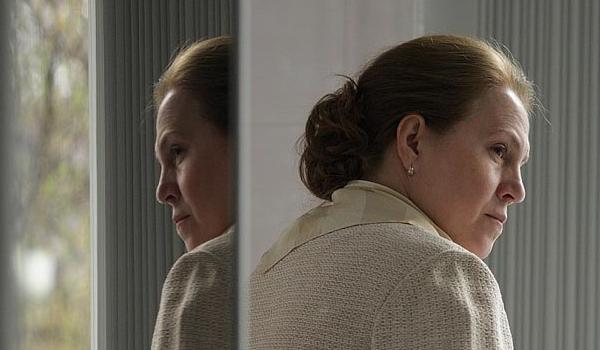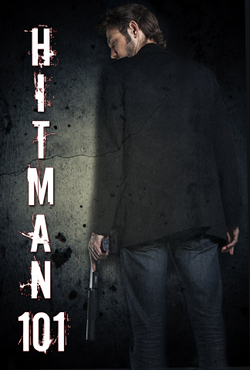Review: Elena (2011)
Cast: Yelena Lyadova, Nadezhda Markina, Aleksey Rozin
Director: Andrei Zvyagintsev
Country: Russia
Genre: Drama
Official Trailer: Here
Editor’s Note: Elena opens in limited release in North America starting May 16th 2012.
A tree at dawn, its leafless branches bare against the steel and glass of the apartment building it neighbours. Slowly, a change of focus, and into view comes a bird amidst the boughs, sitting silently and surveying the land around. It is the dead of winter, but even here amongst the signs of decay and mortality exists a hidden life, going on despite its surroundings. In his opening to Elena, which won a Jury Prize at Cannes last year, director Andrei Zvyagintsev grips the audience in an aesthetic embrace, the sheer transfixing majesty of his cinematography drawing us in. His visual sensibility is remarkable, his powerfully beautiful and instantly captivating imagery flooding the film in its very earliest scenes with a clear potential for greatness.
In his opening to Elena, director Andrei Zvyagintsev grips the audience in an aesthetic embrace, the sheer transfixing majesty of his cinematography drawing us in.
 In the apartment lies the freshly awoken Elena, an amiable woman in her sixties. She shares the space, though not a bedroom, with her second husband, to whom she has been married just a few short years. He is a wealthy industrialist, a lifetime of opulent work furnishing him with this spacious and comfortable home. From her previous marriage Elena has a son and through him two grandchildren; he does not share the fiscal fortune of his mother. Much to her husband’s chagrin, Elena is quick to help her son foot the various bills his family racks up, but when she asks him for the money to fund her eldest grandson’s college education he decides to finally put his foot down.
In the apartment lies the freshly awoken Elena, an amiable woman in her sixties. She shares the space, though not a bedroom, with her second husband, to whom she has been married just a few short years. He is a wealthy industrialist, a lifetime of opulent work furnishing him with this spacious and comfortable home. From her previous marriage Elena has a son and through him two grandchildren; he does not share the fiscal fortune of his mother. Much to her husband’s chagrin, Elena is quick to help her son foot the various bills his family racks up, but when she asks him for the money to fund her eldest grandson’s college education he decides to finally put his foot down.
Though its influence on film financing has been less than productive, the fallout of the financial crisis has found manifestation in the narratives of a number of great films internationally, each speaking to the predominant fears of ordinary people. From the American Take Shelter to the Greek Attenberg to the English Kill List and many more besides, cinema has responded to the madness of economic downturn and the universality of its effects upon ordinary life in a remarkable fashion. Elena could be seen as a Russian counterpart to these films, the ideas of financial instability and familial decay it tackles clear indicators of political intention. To consider it great, however, would be a considerable stretch of that word’s meaning. Effulgently shot though it is, Elena fails on a number of key levels, its pristine visuals eventually little more than a pretty mask covering a vacuous shell of a narrative beneath.
…there’s a crippling inertia to the pacing and plot arc that sees any insight whatsoever buried under an ever-building pile of dull scenes and uneventful interchanges.
 With its central theme of family and the positioning of this family through a number of different social levels, Elena seems perfectly equipped to pass intelligent comment on the current state of Russian society. Yet there’s a crippling inertia to the pacing and plot arc that sees any insight whatsoever buried under an ever-building pile of dull scenes and uneventful interchanges. As the eponymous character, Nadezhda Markina delivers an affecting performance, but Elena herself is almost instantly forgettable. That she is the film’s most enveloping character, then, is indicative of just how uninteresting it is. Even if one were to forgive it the sparseness of any storytelling ingenuity and look beyond this to the underlying economic standpoints, the film’s attempt to express its opinion is mired in a miasma of missteps and mistakes. It seems at first glance that Elena plays host to an insightful metaphor on inter-class relationships in our current economic climate, but in fact its view of things is notably distorted from that of the great majority of its audience, its interpretation of matters showing a hopelessly—eventually fatally—misguided perception. The way in which Elena’s son’s family is portrayed paints them as worthless lower class succubi, living off the profits of the wealthy whilst sitting at home too lazy to go in search of employment. Eventual plot machinations may seem in favour of an empowerment of the poorer in society, but the way in which this is arrived at belies a fundamental untruth about how people actually live. Elena might try to support the 99%, but it does so in such a caricatured and unrefined way that it makes them seem unworthy. It’s a strange turn of events that betrays the cluelessness of the script, and it’s the final straw for a film flawed beyond rescue.
With its central theme of family and the positioning of this family through a number of different social levels, Elena seems perfectly equipped to pass intelligent comment on the current state of Russian society. Yet there’s a crippling inertia to the pacing and plot arc that sees any insight whatsoever buried under an ever-building pile of dull scenes and uneventful interchanges. As the eponymous character, Nadezhda Markina delivers an affecting performance, but Elena herself is almost instantly forgettable. That she is the film’s most enveloping character, then, is indicative of just how uninteresting it is. Even if one were to forgive it the sparseness of any storytelling ingenuity and look beyond this to the underlying economic standpoints, the film’s attempt to express its opinion is mired in a miasma of missteps and mistakes. It seems at first glance that Elena plays host to an insightful metaphor on inter-class relationships in our current economic climate, but in fact its view of things is notably distorted from that of the great majority of its audience, its interpretation of matters showing a hopelessly—eventually fatally—misguided perception. The way in which Elena’s son’s family is portrayed paints them as worthless lower class succubi, living off the profits of the wealthy whilst sitting at home too lazy to go in search of employment. Eventual plot machinations may seem in favour of an empowerment of the poorer in society, but the way in which this is arrived at belies a fundamental untruth about how people actually live. Elena might try to support the 99%, but it does so in such a caricatured and unrefined way that it makes them seem unworthy. It’s a strange turn of events that betrays the cluelessness of the script, and it’s the final straw for a film flawed beyond rescue.
Elena begins beautifully and harbours a fine performance from a likeable Markina, but it does so little with these strong points that it’s difficult to look at it as anything more than a pretty failure. The moralistic arguments it attempts to make only hamper it further, so haplessly skewed in their execution that they wind up contorted beyond recognition, sure to alienate a huge section of its probable audience and earn Zvyagintsev no favour from those he may think he is supporting. Elena concludes with a shot that harkens back to its first scene; by then it’s only a reminder of the great things that could and should have been.


















 Review: The Shining (1980)
Review: The Shining (1980) Review: The Narrow Margin (1952)
Review: The Narrow Margin (1952) Review: The Cabin In The Woods (2011)
Review: The Cabin In The Woods (2011) Review: The Kid with a Bike (2011)
Review: The Kid with a Bike (2011) Review: Elena (2011)
Review: Elena (2011)

